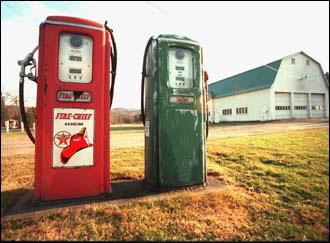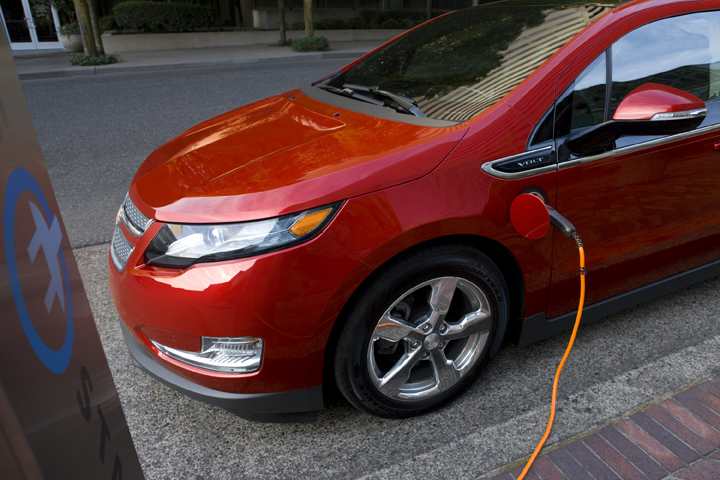Even if you may not have heard of the Peak Oil theory, everyone knows that we'll continue to use more and more gasoline in years to come. Right?
Well, errrrr, no. Maybe not.
At least, that's the conclusion of both industry analysts and the oil companies themselves. The peak year for U.S. gasoline consumption to date was 2006, when we collectively used 374 million gallons every single day.
Since then, a combination of factors--some temporary, like the recent recession, but others permanent--has cut demand and will continue to do so in future years. This year's use fell 8 percent from that 2006 figure.
Even with as many as 27 million more vehicles on the road in 10 years and a resumption of economic growth, says the experts, gasoline consumption will never again hit that 2006 high. In fact, 20 years hence, it may have fallen as much as 20 percent from today's levels.

Old Gas Pumps
The causes for the decline are many:
High fuel costs, from the 2008 price spike that scared the public and caused us to buy more fuel-efficient cars to soaring demand from China;
Gas-mileage laws, which begin tightening for 2012 and will rise to more than 30 mpg for 2016, will equal the impact of taking 30 million cars off the road;
Changing vehicle preferences, as consumers swapped truck-based sport utility vehicles for more efficient car-based crossovers;

2011 Chevrolet Volt
Ethanol in gasoline, now at 10 percent, could rise to 15 percent or perhaps even more (despite a lawsuit today against the E15 mandate);
Plug-in cars that use far less gasoline, or none at all, like the just-launched electric 2011 Nissan Leaf and Chevy Volt, are now entering the vehicle fleet; and
Lower average driving distances, as suburban expansion slows and baby boomers begin to retire in big numbers.

gas pump
Some of these factors may cause grumbling, of course. The smaller, much more efficient engines that will be needed to raise gas mileage may cost more than today's larger, lazier, simpler engines.
Also, as the percentage of ethanol in gasoline rises, average miles-per-gallon on the new blends will fall, because ethanol has less energy per gallon than does gasoline.
And that doesn't even get into the politically challenging questions of a Congressional mandate on how much ethanol must be used, and the impacts of making ethanol from a food crop like corn.
Still, the pace of automotive evolution has never been entirely smooth. And a decline in U.S. gasoline consumption even as it soars elsewhere in the world (China, hello?) is bound to be good news.
[AP via Pittsburgh Post-Gazette]












